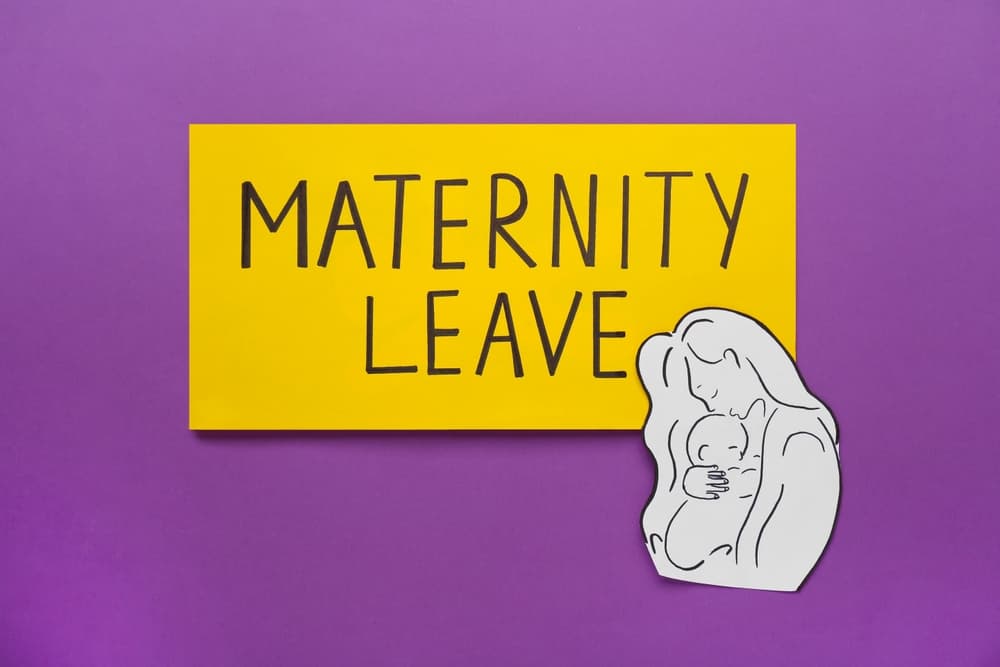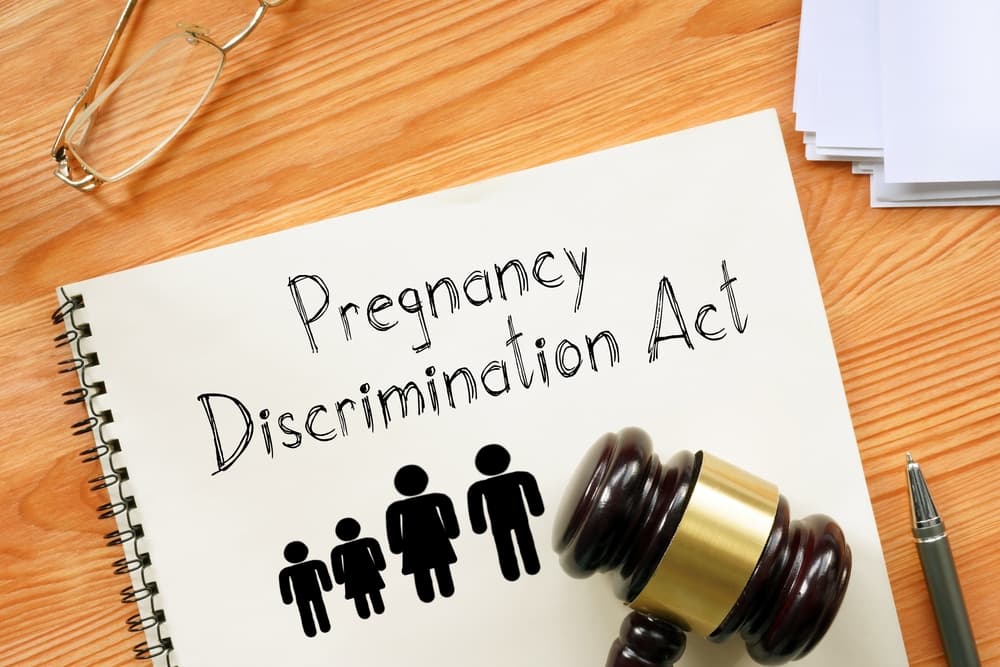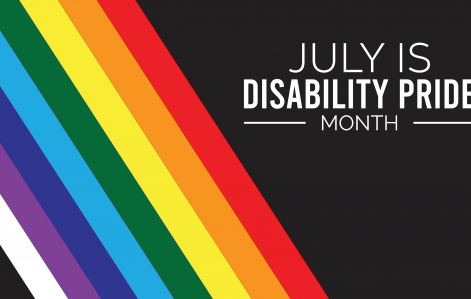If you’re in California, the law protects you from unfair treatment or dismissal due to pregnancy. Let’s dive into what you need to know.
Whenever you suspect your employer violated your rights, speak with a San Diego pregnancy discrimination attorney immediately.
Schedule a Free Case Evaluation Today!
Your Rights Under California Law
California is known for having some of the country’s most employee-friendly laws, which extends to protections for pregnant employees. Here’s a simplified breakdown:
Pregnancy Disability Leave (PDL)
Pregnancy Disability Leave (PDL) is a key element of California labor law, providing vital protections for employees who cannot work due to pregnancy, childbirth, or related medical conditions. This leave offers a safety net for those whose health and well-being, along with that of their child, necessitate a temporary break from work duties.
In California, the right to PDL applies to employees in companies with five or more employees, reflecting the state’s inclusive approach to employment practices. PDL can be up to four months, but it’s tailored to the individual’s medical needs.
This duration refers to the time an employee would typically work within four calendar months, providing flexibility based on different work schedules.
The legal foundation for Pregnancy Disability Leave comes from the California Fair Employment and Housing Act (FEHA). FEHA, specifically under Government Code Section 12945, mandates that employers provide reasonable accommodation and medical leave for employees disabled by pregnancy, childbirth, or related medical conditions.
This comprehensive act protects against employment discrimination based on sex, which encompasses pregnancy and related conditions.
During PDL, employees are relieved from their work duties, but their job security is maintained. This means that employees should return to their original job or a position with similar duties, pay, and benefits upon their return from PDL.
Additionally, under PDL, employers must maintain the employee’s health coverage under the same terms as if they had continued working, ensuring that the employee does not lose their health benefits during this time.
While PDL is a right, it also involves clear communication and responsibilities between employees and employers. Employees must adequately inform their employer about their need for PDL, often supported by medical certification. Employers must acknowledge these legal rights and make the necessary accommodations, aligning with the provisions of FEHA.
California Family Rights Act (CFRA)
The California Family Rights Act (CFRA) stands as a cornerstone in California employment law, offering protections for employees needing time off for significant family and medical reasons, including the birth of a child.
Governed by the California Government Code Sections 12945.2 and 19702.3, CFRA allows eligible employees to take up to 12 weeks of unpaid leave within 12 months, providing job security and health insurance coverage during this time.
To be eligible for CFRA leave, employees must have worked for their employer for over 12 months and clocked at least 1,250 hours in the 12 months preceding the leave. Unlike the federal Family and Medical Leave Act (FMLA), CFRA applies to employers with 20 or more employees, extending its reach to more workers.
CFRA’s protections are strong. It ensures job security, entitling employees to return to their same or a comparable job at the end of their leave. This aspect protects employees’ careers from being adversely affected by their need to take leave.
Additionally, employers must maintain the employee’s health insurance under the same terms as if they had continued to work. This provision is particularly important, as it ensures ongoing health coverage during a period that often involves increased health-related needs.
The scope of CFRA is not limited to the birth of a child; it also includes the placement of a child for adoption or foster care and caring for an immediate family member with a serious health condition. It’s distinct from PDL, which is specifically for the period of disability due to pregnancy and childbirth.
An employee in California might seek both PDL and CFRA leave, offering a more extended period of protection and leave in certain circumstances.
Employees are expected to provide reasonable notice for foreseeable events, like childbirth. Employers, in response, must respect these rights, ensuring they do not interfere with, restrain, or deny the exercise of CFRA rights.
Fair Employment and Housing Act (FEHA)
Beginning with California Government Code Section 12900, FEHA establishes a legal framework prohibiting employers from engaging in discriminatory practices based on various characteristics, including pregnancy.
One of the key provisions of FEHA is its stance against pregnancy-related discrimination. This means employers cannot legally make employment decisions – such as hiring, promotion, termination, or any other employment-related condition – based on an employee’s pregnancy, childbirth, or any related medical condition.
This protection extends to all aspects of employment, ensuring that pregnant employees get treated the same as their non-pregnant counterparts in similar circumstances.
FEHA’s protection against discrimination includes a prohibition against harassment related to pregnancy. This means that employers must not only refrain from engaging in discriminatory practices themselves but also prevent and address any such behavior in the workplace, whether it comes from supervisors, coworkers, or even clients.
Harassment can take many forms, from overtly derogatory comments to more subtle actions that create a hostile or offensive work environment. FEHA mandates that employers take appropriate steps to prevent and correct such behavior.
Another aspect of FEHA is its stance against retaliation. This ensures that employees who exercise their rights under the law, such as taking pregnancy-related leave or filing a complaint about discrimination or harassment, are protected from adverse actions.
Simply put, an employer cannot legally punish an employee for standing up for their rights under FEHA, whether through demotion, salary reduction, job termination, or any other form of retaliatory measure.
In addition to these protections, FEHA also requires employers to provide reasonable accommodations for employees affected by pregnancy, childbirth, or related medical conditions.
This can involve modifications to job duties, temporary transfer to a less strenuous position, or flexible work hours tailored to the employee’s specific needs.
The objective here is to ensure that pregnant employees can continue to work without risking their health or their child’s health, balanced against the reasonable operational needs of the employer.
FEHA’s impact on the workplace protects pregnant employees rights and promotes an inclusive and equitable work environment. Employers are encouraged to foster a culture of respect and equality where employees feel safe and supported, regardless of their pregnancy status.
What Does This Mean for You?
So, what does all of this mean for you?
Job Security
Job security during pregnancy leave is a fundamental right under California employment laws, offering peace of mind to expectant and new parents. This protection ensures that eligible employees who take leave for pregnancy, childbirth, or related medical conditions cannot be dismissed simply for exercising their right to this leave.
When employees take pregnancy leave, they do so with the assurance that their job will be waiting for them upon their return. This protection is rooted in the principles of several California laws, including the PDL law and the CFRA.

These laws collectively ensure that an employee on pregnancy-related leave is generally entitled to return to the same position they held before the leave.
If the same position is not available due to operational changes or other legitimate business reasons, the employer is required to offer a comparable position in terms of pay, location, job content, and career prospects.
This aspect of job security prevents discrimination against employees who are pregnant or have recently given birth. It acknowledges the temporary nature of pregnancy and childbirth as a part of life. It ensures that these life events do not unfairly hinder an individual’s career progression or employment stability.
California’s FEHA strengthens these protections by making it illegal for employers to discriminate against employees based on pregnancy.
Under FEHA, not only is it illegal to dismiss an employee for taking pregnancy leave, but it’s also illegal to take any other adverse employment action against them, such as demotion or reduction in pay, because of their pregnancy or leave status.
Health Insurance
Health insurance is a concern for many employees, especially during significant life events like pregnancy. In California, if you are on pregnancy leave and your employer provides health insurance, they must continue offering this benefit under the same terms as if you were actively working.
This provision is a part of the state’s employment laws, ensuring that employees do not lose their health insurance coverage when it is most needed.
The continuity of health insurance during pregnancy leave is grounded in the PDL law and the CFRA. These laws mandate that employers must maintain an employee’s health benefits during their approved leave period, so whatever health insurance coverage and employer contributions were available to the employee before must be maintained throughout the leave.
This protection is important for several reasons. Firstly, it provides financial security to employees. Pregnancy and childbirth can involve considerable healthcare costs, and maintaining health insurance coverage helps alleviate the financial burden associated with prenatal care, childbirth, and postnatal care.
Secondly, it ensures uninterrupted access to healthcare, which is critical for the mother’s and baby’s health and well-being. Regular medical check-ups, childbirth, and any potential complications require comprehensive medical support, facilitated through continued health insurance coverage.
Also, the requirement for employers to maintain health insurance coverage is in line with the broader principles of non-discrimination and job protection under California employment law. It prevents employers from indirectly penalizing employees who take leave for pregnancy-related reasons by cutting off a crucial benefit.
However, it is important to note that while employers must continue the same level of contributions as they did while the employee was working, employees are still responsible for any portion of health insurance premiums they were paying prior to the leave. Typically, arrangements for these payments are made in advance between the employer and the employee as part of the leave planning process.
In the event of any changes in the health insurance plan during an employee’s leave, the employee retains the right to any new or different benefits provided to similarly situated employees.
If the employer provides a health insurance benefit upgrade to other employees during the leave period, the employee on leave is also entitled to these upgrades.
It’s Not Just About Being Fired
The protections offered by California employment laws extend far beyond the issue of being fired. These laws encompass a broad range of workplace rights, ensuring employees are not subject to negative treatment due to pregnancy, childbirth, or related conditions.
This includes protection against demotions, pay cuts, and other adverse employment actions that might unfairly impact an employee taking pregnancy leave.
Under the umbrella of these protections, employers cannot make any employment decision that adversely affects an employee’s status, pay, or position because they are pregnant or have taken leave.
This means a pregnant employee or an employee on pregnancy leave should not be demoted to a lesser role, have their salary reduced, or face any other action that might be a penalty for their pregnancy or the decision to take leave.
Such actions can constitute unlawful discrimination under the FEHA, which firmly establishes the rights of employees to be free from discrimination based on sex, which includes pregnancy, childbirth, and related medical conditions.

These protections are not limited to overt actions like demotion or pay reduction. They also cover more subtle forms of negative treatment, such as being excluded from training opportunities, being passed over for promotions, or being subjected to less favorable working conditions.
The law requires pregnant employees and those on leave are treated like other employees with similar abilities and qualifications. Any deviation from this principle, where pregnancy or leave is a factor, can violate the law.
Additionally, it’s important to recognize that these protections apply not only during pregnancy or leave but also upon the employee’s return to work.
When an employee returns from pregnancy leave, they are entitled to return to their original job or a comparable position, not just in title and salary but also in terms of status, responsibilities, and opportunities for advancement. This aspect ensures that taking pregnancy leave does not hurt an employee’s career trajectory.
Documentation and Communication
Effective communication and documentation are key aspects of managing your pregnancy and leave in the workplace. Inform your employer about your pregnancy and intended leave as soon as reasonably possible.
This open line of communication allows your employer to plan accordingly and ensures that you receive the necessary accommodations and protections.
When communicating with your employer, it’s beneficial to do so in writing, whether via email or a written note. This creates a clear record of when you notified your employer and the details.
Keep copies of all correspondence related to your pregnancy and leave, including the dates of your planned leave and any responses from your employer.
In addition to communication records, maintain thorough documentation of all medical documentation related to your pregnancy and leave. This includes doctor’s notes, medical certificates, and any other relevant health information.
These documents not only verify the need for leave but also protect your rights. If any disputes arise about the legitimacy or duration of your leave, this documentation will be valuable.
Remember, clear and proactive communication coupled with careful documentation forms the foundation of a smooth and compliant process for taking pregnancy leave.
Each Situation is Unique
Every pregnancy and employment situation is unique. Several factors can influence your rights and the specifics of how laws apply to your situation. For instance, the size of your employer can affect your eligibility for certain types of leave.
Under the California Family Rights Act, for instance, the minimum employer size is different than under federal law. In California, the CFRA applies to employers with at least 20 employees.
This means that if a business has 20 or more employees, it must comply with the CFRA provisions, including providing eligible employees with up to 12 weeks of unpaid leave for certain family and medical reasons, including bonding with a new child.
On the other hand, the federal FMLA applies to employers with 50 or more employees. Under FMLA, eligible employees working for these larger employers are entitled to up to 12 weeks of unpaid leave for similar family and medical reasons.
Your employment history, such as how long you’ve been with your current employer and how many hours you’ve worked in the past year, also plays a role in determining your eligibility for different types of leave. Furthermore, your specific medical needs during pregnancy and the nature of your job duties might require unique accommodations.
Given these variables, it’s wise to familiarize yourself with your employer’s specific policies and how state and federal laws apply to your particular circumstances. When in doubt, seeking clarification and guidance is always a good approach.
Contact a California Workplace Lawyer

Discrimination Attorney
California law offers strong protections for pregnant employees, but knowing these laws and how they apply to you requires an San Diego employment lawyer. If you face issues related to pregnancy leave or feel your employer violated your rights, seek legal advice to understand the best course of action.





